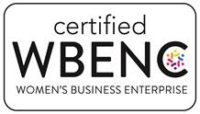Is a new construction project on the horizon?
When new projects come to fruition, the preconstruction phase’s value, where decisions determine the course of the project’s cost, quality, and value, cannot be understated.
However, you may have noticed that the traditional way of preconstruction managers or estimators sharing information with their project managers isn’t as efficient or effective as it could be. After all, information delivered via gobs of documents in emails can easily shadow vital information from reaching the right people.
Sharing information before construction begins can help bridge this gap and ensure your team has the tools to be successful and knows where and how to pivot before “concrete is poured.”
Start strong, and you’ll end strong
A full-day new project kick-off meeting can take the information that was once delivered via gobs of documents and communicate it to your team in person.
Think of it this way–by investing even 10% of your efforts/time to plan and prepare for a new project or initiative with your team now, you bring:
- Clarity,
- Focus,
- Organization
To the project from the get-go.
Here are five ready-to-use tactics to plan your own kick-off meeting:
5 Key Elements to a Productive Kick-Off Meeting
- Bring the team together. When a new project is on the horizon, it’s crucial to centralize your people so everyone is on the same page. Include the project’s general superintendent, superintendent, project executive, project manager, preconstruction, and accounting folks in this kick-off.
- Establish your why. Start the day by sharing the benefits of pre-planning for your project. This will help you get buy-in and keep folks engaged during the meeting.
- Dig deep and ask questions. Break down the project’s components, must-do’s, and who can help facilitate them. Use these questions as prompts to get the conversation flowing:
- What methods of quality control are we confident in utilizing?
- Are all team members trained on the tech and tools we’ll use on this project?
- What milestones should we plan to reconnect to discuss any needed course corrections?
- Create your course. Think of your new project as a maze. Consider where this new project could veer off course and who the folks and processes are that can get it back on track. Identifying challenges and risks now will help your team make informed decisions later.
- Post-kick-off meeting. Woo! Your first meeting is in the books. Now what? As you schedule future team meetings, integrate discussion items related to the new project.
Agenda items can include topics such as:
- Developing a contingency plan for potential issues
- Pinpoint backup solutions for critical “must-do” project components
- Identifying potential hiccups and risks
- Developing strategies or approaches to mitigate risks
When you plan extensively for a project, you’re confident in where and how to correct it when inevitable problems arise. You should come away from your kick-off meeting with an understanding of the project components, how to schedule milestones, and newfound confidence in your ability to tackle it.









